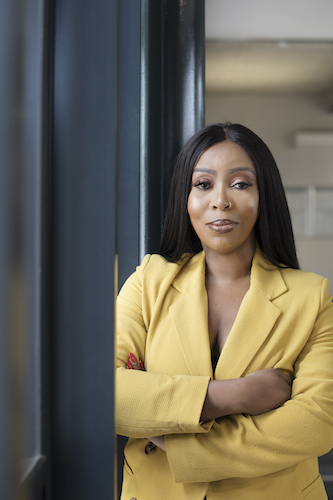There’s been plenty of talk in the wake of President Cyril Ramaphosa’s recent visit to Washington, D.C., capped off by a high-stakes Oval Office meeting with U.S. President Donald Trump. Mathabo Sekhonyana, Marketing Specialist, says at its core, this moment offers a clear view of how national identity is shaped not just by economic metrics, but by perception. As any marketer will tell you: the brand isn’t what you say it is, it’s what they say it is.
The now-viral exchange sparked everything from memes to measured critiques. But beyond the drama, there’s a more serious story about Brand South Africa, and how diplomacy can shape or shake global perception.
According to the 2025 Global Soft Power Index by Brand Finance, South Africa is trending upward in global perception. We’ve climbed to 41st worldwide, making gains in key metrics like ‘Familiarity’ and ‘Influence’. Even more encouraging is our leap in the ‘Business and Trade’ category — up 11 places—suggesting the world is increasingly viewing South Africa as a serious economic player.
But there’s a twist in the tale. The IMD World Competitiveness Yearbook 2024 paints a tougher picture: South Africa ranks 60th out of 67 nations. Key concerns include infrastructure, economic performance, and government efficiency. So while our soft power is gaining ground, our hard metrics are still playing catch-up. It’s a brand conundrum many marketers will recognise: the hype is building, but the product still has bugs.
There’s no doubt that President Ramaphosa’s calm, statesmanlike response to President Trump’s misinformation-laced comments helped manage what could have spiralled into a reputational crisis. But did we lose something in the effort to stay diplomatic?
It’s a fine line. On one hand, South Africa showed restraint, rationality, and maturity — qualities that enhance our brand globally. On the other, there are whispers that the moment called for firmer pushback. When national dignity is on the line, does silence dilute sovereignty?
For brand strategists working with hot-button topics like race and global power dynamics, the takeaway is this: diplomacy is important, but so is knowing when to assert yourself. Branding, after all, is about identity — and identity must be defended as much as it’s projected.
For marketers, nation brand strategists and the interested scholar, this global episode offers several insights:
1. Own The Narrative:
South Africa’s swift factual response to Trump’s claims was a solid move. But owning the narrative long-term means pushing proactive storytelling — not just crisis comms. We need to tell our story on our terms, not just react to someone else’s version of it.
2. Showcase Strengths That Matter:
Education, science, culture, and sports are all soft power levers South Africa can lean into. If we want to be seen as a serious player, we need to act like one, on global stages and digital platforms alike.
3. Align The Brand With The Bottom Line:
Economic competitiveness and brand equity are not mutually exclusive. Government and the private sector must work together to ensure that the story we’re telling matches the experience on the ground. That means real investment in infrastructure, innovation, and governance.
More Than Just A Media Moment
The Trump-Ramaphosa exchange was more than just a media moment, it was a brand moment. It reminded us that South Africa’s image is shaped by how we act, how we react, and how we tell our story to the world.
The opportunity now? To move beyond the memes, leverage the momentum, and build a brand that’s not only respected globally but rooted in the real progress happening at home.
MATHABO SEKHONYANA
LinkedIn










